Why Judo Is Good For Children #
Why Judo Is Good For Children #
-
Judo is the safest contact sport for children under 13 years of age.
(Source: American College of Sports Medicine)
Judo is the best training sport for children from 5 to 12 years of age.
(Source: World Health Organization)
Judo is the second most complete sport that exists.
(Source: International Olympic COmmittee, 2000)
Judo is the initial sport to train children and young people from 4 to 21 years of age.
(Source: UNESCO 2017)
Judo is, after rowing, a physical exercise with the highest calorie consumption: 363 calories for 30 minutes.
(Source: World Health Organization)
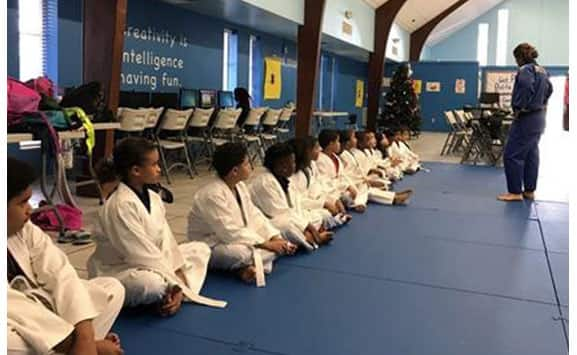
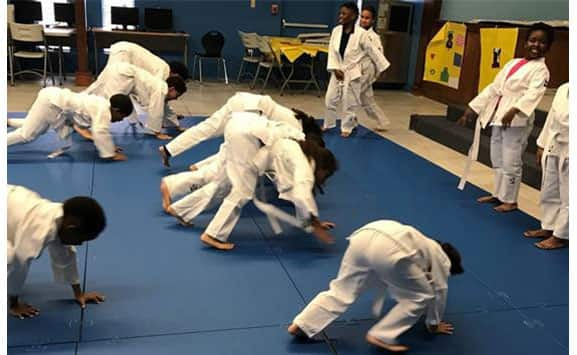
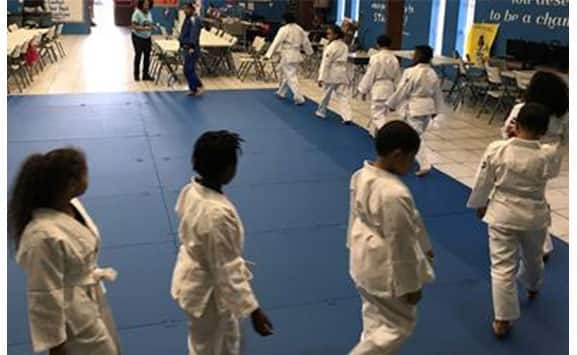
Mentoring Topic #1 - Courtesy #
Mentoring Topic #1 - Courtesy #
| Topics | In Judo | In Life | With Law Enforcement |
|---|---|---|---|
| Explore what courtesy means to participants | |||
| Define expectations of courtesy | Behaviors in the dojo with fellow judokas, senseis | Golden Rule - treat others how you want to be treated | Kindly address LEOs |
| Why is courtesy important? | Nobody can get better alone - need to work together | Courtesy & kindness given are often reciprocated | De-escalates situations to work things out with courtesy |
| Examples of courtesy with parents/family | Be on time when picked up - apply discipline at home | Remember to say please and thank you, help when asked | Encourage all family members to be courteous with officers |
| Examples of courtesy with teachers/authority | Bow to your sensei and help out when asked | Open up a door and hold for others to go through first | User terms like "Yes sir" and "Yes Ma'am |
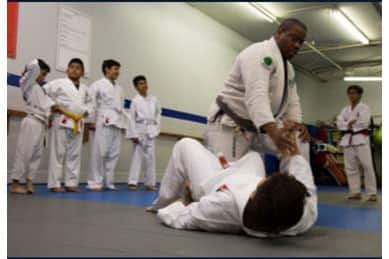

Mentoring Topic #2 - Courage #
Mentoring Topic #2 - Courage #
| Topics | In Judo | In Life | With Law Enforcement |
|---|---|---|---|
| Explore what courage means to participants | |||
| Define courage | Trying something new, facing a larger or more skilled opponent | Addressing events & situations that are not easy | To be friendly with LEOs even when it may not be popular |
| Why is courage important? | It's necessary to grow and improve in the sport | Life can be difficult. Without courage one may be hampered by fear | Sometimes it take courage to create positive change in the world |
| Examples of courage amoung your peers | First timers entering the class, being called out by sensei | Friends/peers who overcome tough family life situations | Don't be afraid to approach an officer if/when you need help |
| Examples of courage with parents/family | Family members may try judo but may be nervous to do so | Parents going to an interview, responsibilities with jobs | Everyday LEOs put their lives on the line for their communities |
| Examples of courage with teachers/authority | Sensei's have used courage to get where they are today | Every day a teacher needs to get in front of their class | LEOs encounter difficult situations on a daily basis |
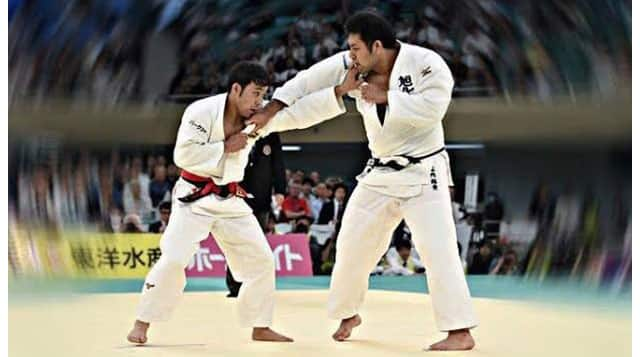

Mentoring Topic #3 - Friendship #
Mentoring Topic #3 - Friendship #
| Topics | In Judo | In Life | With Law Enforcement |
|---|---|---|---|
| Explore what friendship means to participants | |||
| Define what constitutes friendship | Part of a club where friendships are developed through working together | Varying levels of friendship throughout life that create experiences/relationships | Building friendships with LEOs will build a safer and stronger community |
| Why is friendship important? | Support of one another to become better judokas | People are better together than individually and help each other | Friendship leads to positive relationships and trust |
| Examples of friendship with your peers | Working out together, cheering for each other's competitions | Someone who will support you when you most need it | Friends will "have each others backs" in tense situations |
| Examples of frienships with parents/family | Friends in the dojo can also become family friends | Some friendships are so close that they seem like family | As PAL Judokas, can help build friendships with family & LEOs |
| Examples of friendships with teachers/authority | A sensei can be a friend and mentor for life | Teachers' caring establishes frienships that can last forever | Friendships transcend someone's occupation |
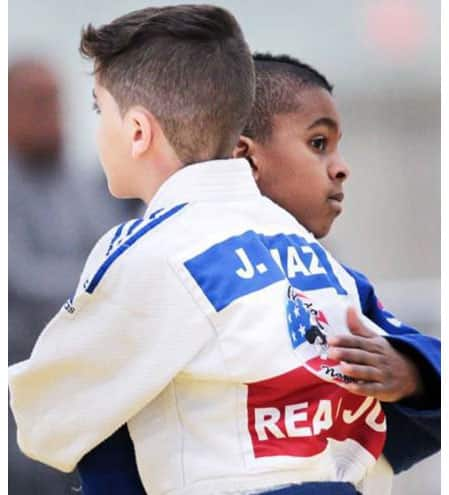
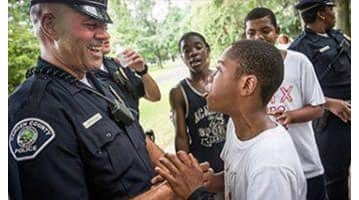

Mentoring Topic #4 - Honesty #
Mentoring Topic #4 - Honesty #
| Topics | In Judo | In Life | With Law Enforcement |
|---|---|---|---|
| Explore what honesty means to participants | |||
| Define expectations of honest behaviors | Always be honest with teammates and sensei | Honesty is always the best policy with anything in life | When engaging officers, always answer questions honestly |
| Why is honesty important? | It builds trust among friends & teammates | It establishes one's character as someone people can trust | Lying to law enforcement could have punitive results |
| Examples of honesty with your peers | Honest, constructive feedback when training | Friendships are based on honesty and trust | If you see something that could be a problem, say something |
| Examples of honesty with parents/family | Be honest with your parents about your school day/training | Don't hide anything and be honest, even when it's difficult | Honesty is always the best policy when interacting with the police |
| Examples of honesty with teachers/authority | Ask questions if you don't understand and ask for help | Ask for help from teachers when you need it - they will help you! | Honesty can help law enforcement to protect & serve |
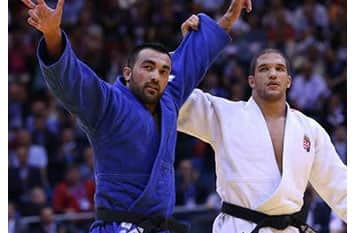

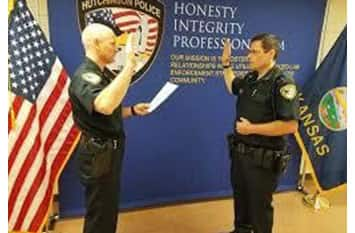
Mentoring Topic #5 - Honor #
Mentoring Topic #5 - Honor #
| Topics | In Judo | In Life | With Law Enforcement |
|---|---|---|---|
| Explore what honor means to participants | |||
| Define honor as part of the PAL Judo program | Expectation to represent self/sport/sensei/program with honor | Being honorable in life will help lead you to success | Honor the authority and commitment of LEOs |
| Why is honor important? | It is foundational to the sport & core of mutual benefit | It creates a higher standard to be respected by others | Without honoring authority, chaos and danger may ensue |
| Examples of honor with your peers | Practicing your best with teammates makes each other better | Conducting yourself with honor creates self confidence | Being honorable makes you a respected citizen |
| Examples of honor with parents/family | Honor your commitment as others honor theirs | Honor your parents wishes to build trust and mutual respect | Acting honorably creates a stronger community for all |
| Examples of honor with teachers/authority | Maximum effort and commitment holds honor | Honor a teacher's requirements for successful task completion | Honor given will result in honor returned |
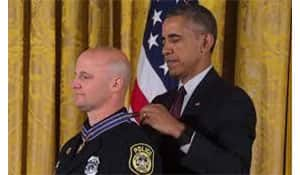
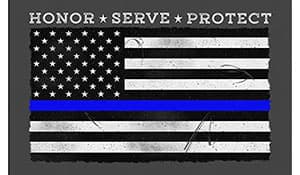
Mentoring Topic #6 - Modesty #
Mentoring Topic #6 - Modesty #
| Topics | In Judo | In Life | With Law Enforcement |
|---|---|---|---|
| Explore what modesty means to participants | |||
| Define expectations of modesty | Nobody is to act like they are better than anyone else | A modest person is always more easily accepted in life | Do not think you are above the law due to certain circumstances |
| Why is modesty important? | Modesty creates respect for and collaboration with others | Lack of modesty is creating a destructive "me-first" culture | Being modest creates mutual respect and de-escalation |
| Examples of modesty with your peers | Do not brag if you are better than others, help them get better | Modesty among peers will endear you to others | Be modest if in a situation where you are being questioned |
| Examples of modesty with parents/family | Accept praise with modesty | Modesty & humility are always helping keep families strong | |
| Examples of modesty with teachers/authority | Accept praise with modesty | Be modest in your dealings with others |
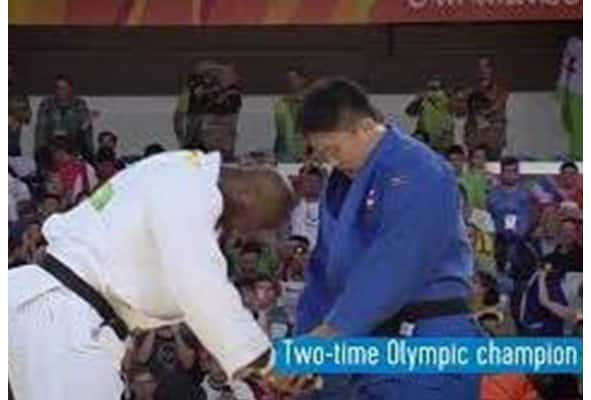
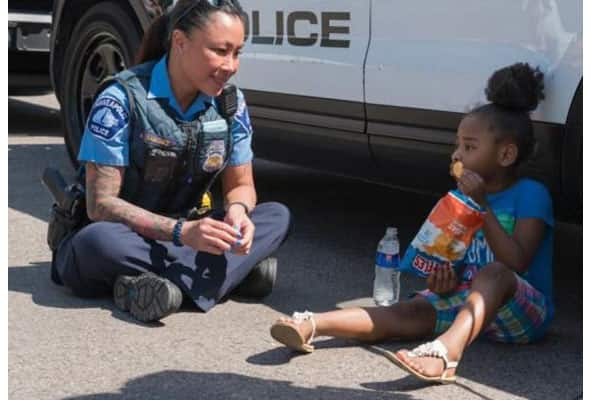
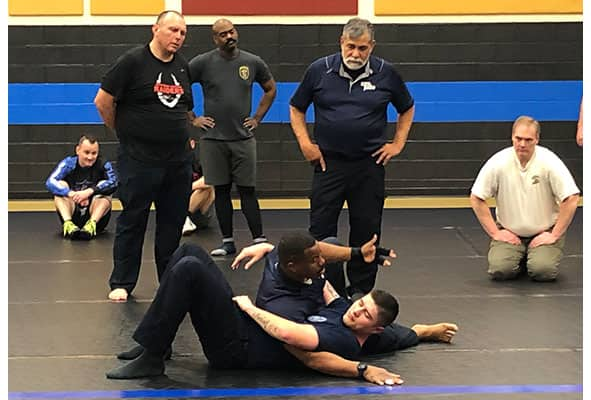
Mentoring Topic #7 - Respect #
Mentoring Topic #7 - Respect #
| Topics | In Judo | In Life | With Law Enforcement |
|---|---|---|---|
| Explore what respect means to participants | |||
| Define expectations of respect in PAL Judo Club | Respect of others and the program are paramount | Participants are on their best behavior both in & out of the dojo | PAL Participants must always respect the authority of LEOs |
| Why is respect important? | Mutual respect & welfare are the core values of Judo | To be respected, one must give respect to others | Mutual respect will de-escalate situations & strengthen communities |
| Examples of respect with your peers | Training carefully so as not to injure one another | Opinions of others should be respected even if not believed | As fellow community members, respect is the core of relationships |
| Examples of respect with parents/family | Inform family members to not wear shoes on mats | Always respect your parents, even within disagreement | |
| Examples of respect with teachers/authority | The teacher must always receive ultimate respect | Positions of leadership/authority should be respected | Positions of leadership/authority should be respected |
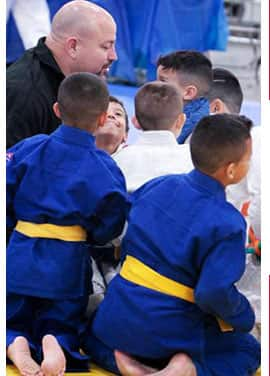
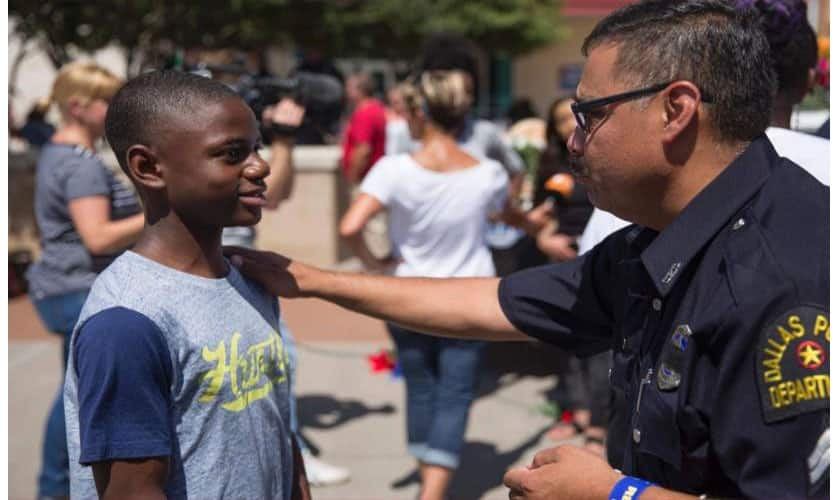
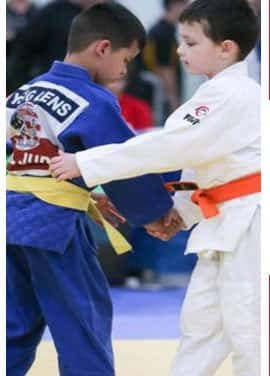
Mentoring Topic #8 - Self-Control #
Mentoring Topic #8 - Self-Control #
| Topics | In Judo | In Life | With Law Enforcement |
|---|---|---|---|
| Explore what self-control means to participants | |||
| Define expectations for having self-control | Everyone must control their mind and bodies in practice | Self-control allows one to control the situation vs. the situation control them | Self-control can help de-escalate an emotional situation |
| Why is self-control important? | For safety and mastery of techniques with others | Having self-control will keep you focused regardless of the situation | Could prevent a serious situation |
| Examples of self-control with your peers | Controlling body and throws so as not to injure others | If a friend is upset with you, controlling your emotions will help the situation | Having self-control of self can help also control group scenarios |
| Examples of self-control with parents/family | Understanding Judo may be secondary to family commitments | Self-control will prevent you from doing or saying something you may regret later | |
| Examples of self-control with teachers/authority | Keeping calm when instructor correcting you | Approaching difficult subjects with self-control to maintin focus | Self-control will always help when tensions may be high |
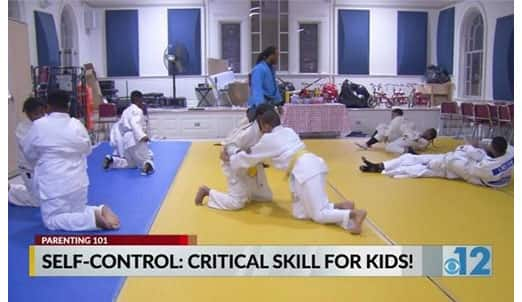

 HOW DOES IT GET IMPLEMENTED?
HOW DOES IT GET IMPLEMENTED?
